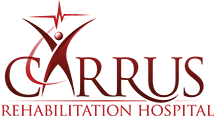
Among the various components of addiction recovery and mental health rehabilitation, peer support plays a pivotal role. Social groups are formed by people who come together because they share things in common. The concept of peer support is similar – it is a gathering of individuals with the shared experience of being in recovery from addiction or a mental health issue.
Oftentimes, even well-meaning loved ones cannot meet your needs of being with people who have the same struggle as you. Mental health providers use social support as a part of treatment for addiction and mental health rehabilitation.
In this article, we will explore peer support further and how it can benefit those in rehabilitation for addiction and mental health issues.
What is Peer Support?
A peer support group is usually helmed by peer support workers who play a crucial role in the recovery process by offering guidance to individuals facing similar challenges. Drawing from their personal experiences of a successful recovery, these workers empower their peers, so that they too can do the same.
In peer group meetings, attendees engage in discussions about personal experiences, coping strategies, and the progress they have made in their journey to recovery. Sharing stories of struggle and triumph fosters a sense of belonging and connection, reassuring anyone participating that they are not alone in their battles. It also creates a sense of accountability, as members hold each other accountable for their actions, which can be highly motivating for individuals in recovery.
Peer support can help prevent feelings of isolation and loneliness, help you commit to your recovery journey, and greatly reduce the risk of relapsing.
Peer Support for Children and Adolescents with Addiction and Mental Health Issues
A peer support worker in the context of children needing addiction treatment could share their experiences overcoming addiction at a very young age. They can do the following:
- Organizing Sober Activities – Peer leaders facilitate sober activities that enable individuals in recovery to socialize without relying on drugs or alcohol. These activities help participants foster healthy connections and build meaningful relationships without harmful substances.
- Providing Mentorship – A peer leader can offer mentorship and become a role model to young people in recovery by actively listening without judgment and sharing effective strategies for managing life or school during the recovery. Peer support workers create a sense of connection and trust, making it easier for children to open up about their feelings, fears, and aspirations during the recovery process.
- Connecting with Social Services – Peer leaders help other members of the peer support group access vital social services and other educational material to help other members. They assist their peers in rebuilding their lives post-recovery.
- Teaching Life Skills – A peer leader imparts valuable life skills, such as stress management techniques, healthy coping mechanisms, and effective communication skills, that can help others throughout their life.
Wherever an individual is in their recovery journey, peer support groups offer an environment of empathy, support, and acceptance.
Where to Find a Peer Support Group?
Local support groups provide a safe and empathetic environment where individuals facing similar struggles can come together, share experiences, and provide mutual support.
You can seek out local support groups for peer support for your specific issue, whether it’s alcohol addiction, PTSD, anger management, or trauma related to physical or sexual abuse.
Finding local support groups for addiction can be relatively simple, as many organizations and communities offer such services. You can check with:
- Treatment Centers – Many addiction treatment centers organize local support groups as part of their aftercare programs.
- Non-Profit Organizations – Various non-profit organizations, such as Alcoholics Anonymous (AA) and Narcotics Anonymous (NA), provide local support groups across communities.
- Online Directories – Online directories and websites offer information about local support groups in your area, making it easy to find the most suitable one for your needs.
- Community Centers – Community centers and churches often host local support group meetings for addiction recovery.
- Healthcare Professionals – Consult with addiction counselors, therapists, or healthcare providers, as they can direct you to available local support groups.
Child and Adolescent Mental and Behavioral Specialists in Sherman, TX
Peer support groups provide validation, acceptance, and mentorship. They can motivate patients to stick with their recovery program. They are a valuable resource, especially for families who are also affected by their loved ones’ addiction or mental health issues.
If you are seeking more for addiction recovery or mental health rehabilitation of your child, consult our mental and behavioral health specialists at Carrus Behavioral Hospital. We specialize in the treatment of children and adolescents with behavioral issues and can provide your child with the comprehensive support and a sense of community – which includes family therapy – they need to make strides in addiction recovery or mental health rehabilitation. We can also get you information on peer support groups to help you find a small community of people to talk and relate to.
For any questions or to schedule a consultation with us, call our office today at (903) 870-2600.

